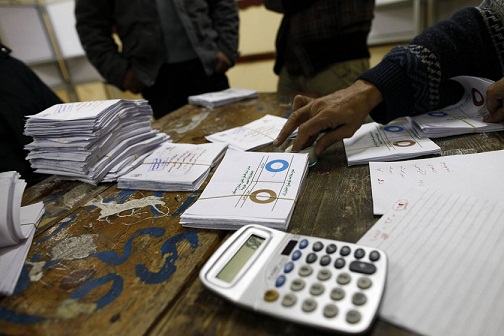 Before jumping to abstract conclusions about what Egypt’s foreign policy will be like under the rule of the Muslim Brotherhood, we must first review what has already happened under their watch. It is especially important to follow the actions of one Assaam Hadad, aid to the president and close confident of Khairat Shater, who has so far overseen nearly all of Egypt’s foreign policy decisions since the Brotherhood’s rise to power.
Before jumping to abstract conclusions about what Egypt’s foreign policy will be like under the rule of the Muslim Brotherhood, we must first review what has already happened under their watch. It is especially important to follow the actions of one Assaam Hadad, aid to the president and close confident of Khairat Shater, who has so far overseen nearly all of Egypt’s foreign policy decisions since the Brotherhood’s rise to power.
The Morsy administration’s stance regarding the Arab-Israeli conflict is perhaps the clearest of all its foreign policy positions, and is partially what has enabled Egypt to maintain the support of the United States and Europe.
Not only has Morsy agreed to maintain Egypt’s peace treaty with Israel as did Mubarak, but he also demonstrated his ability to influence Hamas and convince them to agree to ceasefires. In this way, Morsy has worked to help widen the division that already exists within Palestinian politics by acting as Hamas’ guarantor, and, as a result, indirectly involving Egypt in the administration of Gaza’s affairs.
In this way, Morsy has lent credibility to Benjamin Netanyahu and the right wing of Israeli politics, who believe that that Palestinian problem should be not be solved with a two state solution, but rather by having the West Bank and Gaza Strip come under the control of Jordan and Egypt respectively. Morsy’s pursuance of this policy has essentially guaranteed him the support of Europe and the United States, who view the preservation of Israel’s security as their number one priority in the region.
Morsy’s purported affinity with the Syrian revolution and his vocal opposition to Iran and the Assad regime has also done much to help him garner the support of many European nations. If anything, Morsy is even better equipped than Mubarak was to implement the west’s agenda regarding Israel, Syria and Iran, because of the perceived level of popular legitimacy that associated with him and his administration.
The Brotherhood knows that working to appease the United States is of utmost significance. For that reason they’ve been careful to ensure Israel’s security, criticise and attack Iran and the Assad regime, and most of all, convince their own allies to refrain from launching attacks on American soil. But what about Europe? The Muslim Brotherhood’s relationship with this entity is indicative of their relationship with the world at large.
It begs to note that the Muslim Brotherhood is an ideological organisation with branches in 68 different countries whose goal is to eventually establish a worldwide Caliphate. They are a transient organisation that does not recognise any nations, states or borders, but rather seeks to export its revolutionary model to as many parts of the world as possible. For practical reasons, they have often avoided entering into open conflict with the powers that be, however, they have never given up on their dream of establishing a worldwide Caliphate.
That being said they will without a doubt try, with the help of local Islamist parties, to rise to power in as many Arab and Muslim countries as possible, both in Africa and Asia. And although they cannot do the same in Europe, they will work with other, more radical groups to stir up trouble and put pressure on the Europeans to agree to accept the actions of the Muslim Brotherhood both in and outside Egypt. This will be done with the blessings of the United States. However does the US not see the potential for this to backfire and lead to a repeat of what happened on 9/11?!
I predict that the US-Muslim Brotherhood honeymoon will not last long, as the revival of radical Brotherhood sponsored Islamist groups throughout the Arab world will have damning ramifications for world stability, particularly in the Gulf which is responsible for providing a large share of the world’s petroleum needs.
A country as strategically located as Egypt cannot remain isolated for long, however it is clear that if the Muslim Brotherhood remains in power, Egypt will remain in a constant state of tension with its neighbours.
As for the rise of radical Islamist movements in Muslim communities throughout Europe, this will not help to stabilise inter-communal relations in these countries, but rather will lead to a renewal of violence, as immigrant youth look for vehicles to express their anger about the lack of opportunities available to them, especially now during Europe’s economic crisis.
The issue of identity will inevitably become a point of contention between Europe’s right wing and Islamist fascists, and will eventually spawn an ethnic conflict that could turn these nations into debased, deranged versions of their former selves.



